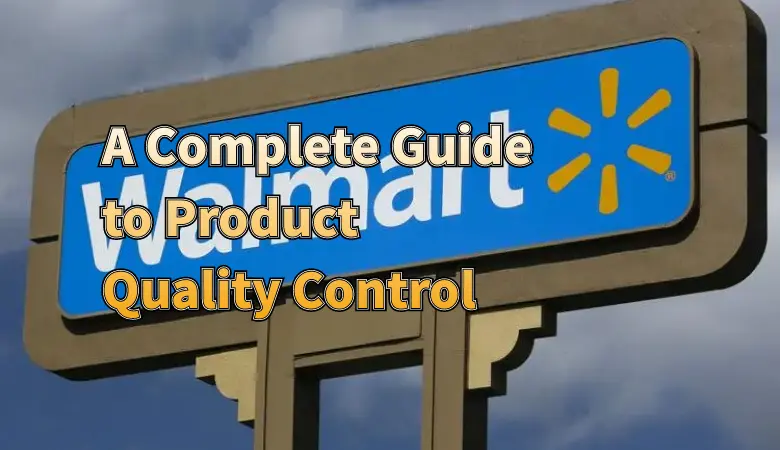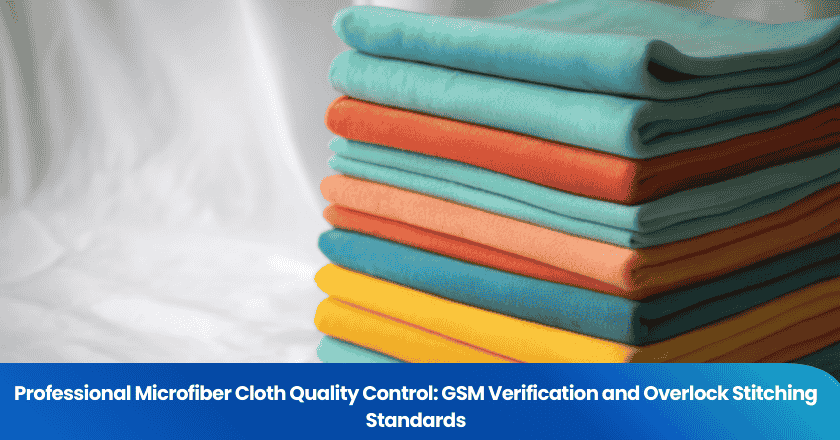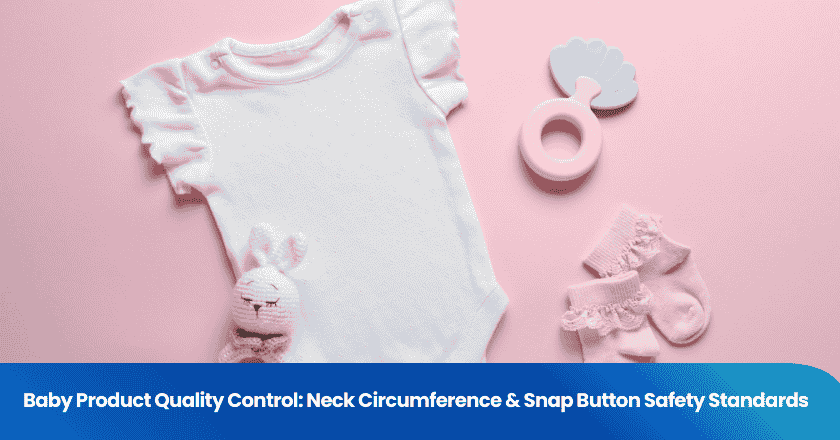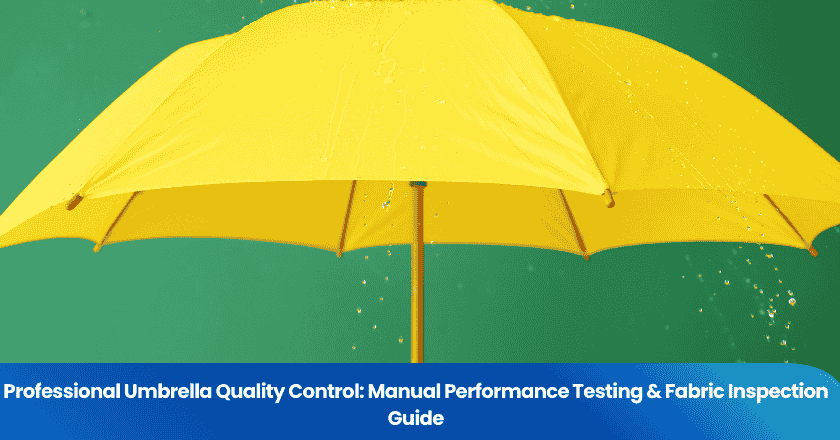
Walmart Marketplace is a platform where third-party sellers can list and sell their products alongside Walmart’s own inventory. It offers sellers access to a large customer base, but also comes with strict guidelines to ensure product quality and customer satisfaction. As the platform continues to grow, maintaining high product standards has become more important than ever.
For sellers on Walmart Marketplace, product quality control is crucial in ensuring customer satisfaction, maintaining a good seller rating, and ultimately boosting sales. Quality issues can lead to negative reviews, return requests, and even account suspension. This guide will provide a comprehensive overview of how product quality control works within the Walmart Marketplace ecosystem and how you can ensure your products meet the required standards.
1. What is Product Quality Control in Walmart Marketplace?
Definition and Importance of Quality Control
Product quality control involves the process of ensuring that products meet specific standards of quality before they are sold to customers. For Walmart Marketplace sellers, this means inspecting, testing, and verifying that products comply with Walmart’s stringent requirements.
Quality control is crucial for maintaining high customer satisfaction and reducing the number of product returns, which can directly impact a seller's reputation and sales.
How Quality Control Impacts Customer Satisfaction and Sales
Product quality directly influences customer experience. A product that meets or exceeds expectations leads to positive reviews and repeat purchases. On the other hand, low-quality products can cause customer dissatisfaction, which may result in returns, negative feedback, and damage to the seller's reputation. Consistently providing high-quality products can increase sales and enhance brand loyalty.
The Role of Product Quality Control in Building Brand Trust
Ensuring consistent product quality helps build trust with customers, which is essential for long-term success on Walmart Marketplace. By demonstrating a commitment to quality, sellers can differentiate themselves from competitors, gain positive reviews, and foster a loyal customer base.
2. Key Elements of Product Quality Control in Walmart Marketplace
Product Inspection: Pre-shipment vs. Post-shipment
• Pre-shipment Inspection: This occurs before products are shipped to customers. It includes thorough checks for defects, functionality, and adherence to specifications.
• Post-shipment Inspection: This involves quality checks once the product has been shipped to ensure it reaches customers in good condition and meets Walmart’s standards.
Packaging Standards for Walmart Sellers
Walmart has specific packaging guidelines that sellers must follow. Proper packaging helps protect products during transit and ensures they are delivered in sellable condition. Failure to comply with Walmart’s packaging standards can result in penalties or returns.
Labeling and Documentation Requirements
Walmart requires sellers to ensure their products are correctly labeled with all necessary information such as ingredients, warnings, and safety guidelines. Accurate and clear labeling is crucial for compliance with both Walmart’s standards and legal regulations.
3. How to Ensure Compliance with Walmart’s Product Quality Standards
Overview of Walmart’s Quality Standards
Walmart has strict quality standards designed to ensure that products sold on their Marketplace meet consumer safety and performance expectations. These standards cover a wide range of product categories, from electronics to clothing, and include specific regulations for labeling, packaging, and testing.
Common Requirements for Product Listings
Sellers must ensure that their product listings are accurate, including clear descriptions, high-quality images, and all relevant information. This helps Walmart verify that the products meet their quality expectations and reduces the likelihood of returns.
How to Stay Updated with Walmart’s Evolving Standards
Walmart continuously updates its standards to align with new regulations and improve customer experience. Sellers should regularly review Walmart’s Seller Help pages, attend webinars, and keep an eye on industry trends to ensure they remain compliant with any new changes.
4. The Role of Third-Party Inspection Services in Walmart Marketplace Quality Control
What are Third-Party Inspection Services?
Third-party inspection services are independent companies that specialize in inspecting and testing products to ensure they meet the necessary quality and safety standards. These services are particularly useful for Walmart sellers who want to maintain high product standards without handling the process themselves.
Benefits of Using Third-Party Inspections for Walmart Sellers
• Expertise: Third-party inspectors are knowledgeable about Walmart’s guidelines and industry regulations.
• Efficiency: These services can handle inspections quickly, allowing sellers to focus on other aspects of their business.
• Risk Reduction: Third-party inspections ensure products are thoroughly checked, reducing the risk of faulty products being shipped to customers.
How Third-Party Inspection Services Ensure Product Safety and Compliance
Third-party inspectors conduct various tests (e.g., safety tests, performance tests, and compliance with regulations like ASTM, CPSIA). They also check for packaging and labeling accuracy, ensuring that all products meet Walmart’s requirements before being shipped to customers.
Key Certifications and Accreditations of Third-Party Inspection Services
Look for third-party inspectors with certifications such as ISO 9001 (quality management) and ISO 17020 (inspection services). These certifications ensure that the inspection service follows internationally recognized standards.
TradeAider Third-Party Inspection Services
Before listing on e-commerce platforms, TradeAider can assist sellers in ensuring product quality and compliance. For sellers with multiple sales channels, TradeAider can provide consistent quality assurance, ensuring uniform product standards across different platforms. TradeAider can help sellers confirm whether their products meet the standards required by eBay, avoiding the removal or suspension of sales due to non-compliant products.
To further support e-commerce sellers, TradeAider E-Commerce Quality Solutions offers tailored services designed to enhance product competitiveness through comprehensive quality control. We specialize in a variety of product categories, such as clothing, toys, 3C electronics, home goods, beauty and personal care products, and household appliances. By partnering with TradeAider, sellers can ensure their products meet the highest standards, improving customer satisfaction and boosting sales.
5. Types of Product Inspections for Walmart Sellers
Pre-production Inspections
Conducted before mass production begins, this inspection ensures that samples meet product specifications and quality standards. It helps identify potential issues before they affect large-scale production.
In-line Inspections
In-line inspections are performed during the production process to identify defects early on, ensuring that faulty products do not proceed to the next stage.
Final Random Inspections
This inspection occurs once products are complete and ready to be shipped. A random sample is tested for quality to ensure that the final product batch meets the required standards.
Laboratory Testing for Compliance (e.g., ASTM, CPSIA)
Lab tests are used to confirm that products meet safety standards such as ASTM or CPSIA (for children’s products), ensuring compliance with both Walmart’s and legal requirements.
6. Common Product Quality Issues on Walmart Marketplace
Defective Products
Products with defects such as damaged parts, broken components, or functionality issues are among the most common quality problems.
Misleading Product Descriptions and Images
Sellers must ensure that product descriptions and images accurately reflect the items being sold. Misleading information can result in complaints and returns.
Non-compliance with Walmart’s Packaging and Labeling Requirements
Failure to meet Walmart’s strict packaging and labeling standards can result in penalties, product rejection, or returns.
Handling Returns Due to Quality Issues
Managing returns due to quality issues can harm a seller’s reputation. Sellers should be prepared with a clear return policy and a plan to resolve quality issues promptly.
7. Benefits of Outsourcing Product Quality Control for Walmart Marketplace Sellers
Expert Knowledge of Walmart’s Guidelines
Outsourcing quality control ensures that your products meet Walmart’s specific standards without the need to stay constantly updated on changes.
Time-saving and Cost-effective Solutions
Outsourcing allows sellers to focus on their core business activities while experts handle quality control, making the process more efficient.
Risk Reduction Through Consistent Product Quality Monitoring
By outsourcing quality control, sellers can ensure consistent monitoring of their products, reducing the risk of quality issues affecting their sales or reputation.
8. How to Choose a Reliable Product Quality Control Partner
What to Look for in a Quality Control Service Provider
• Experience: Look for a partner with experience in your product category.
• Certifications: Ensure that the provider holds necessary certifications.
• Track Record: Review their history of helping sellers comply with Walmart’s standards.
Key Certifications to Ensure Reliability
Ensure that your chosen quality control partner holds certifications like ISO 9001 or has a strong track record of working with Walmart sellers.
How Third-Party Inspection Services Can Improve Your Business
Third-party inspection services ensure that your products meet the highest quality standards, which can boost your seller reputation, reduce returns, and increase customer satisfaction.
9. Q&A: Common Questions About Product Quality Control for Walmart Marketplace Sellers
Q: What are the penalties for selling low-quality products on Walmart Marketplace?
A: Walmart can suspend or ban sellers, resulting in loss of sales and reputation damage.
Q: Can I manage product quality control myself?
A: While it’s possible, partnering with experts or third-party services ensures thorough quality control.
Q: How can third-party inspection services help me meet Walmart’s requirements?
A: Third-party inspectors ensure compliance with Walmart’s standards, reducing the risk of product rejection.
Conclusion
Quality control is essential for maintaining a strong reputation on Walmart Marketplace. By ensuring your products meet the necessary standards, you can enhance customer satisfaction and reduce the risk of returns and negative feedback.
Effective quality control practices are key to long-term success on Walmart Marketplace. Sellers who consistently provide high-quality products build trust with customers and enjoy sustained sales.
Partnering with reliable quality control services allows sellers to streamline their operations, reduce risks, and maintain high product standards, all of which are essential for thriving on Walmart Marketplace.
Grow your business with TradeAider Service
Click the button below to directly enter the TradeAider Service System. The simple steps from booking and payment to receiving reports are easy to operate.





